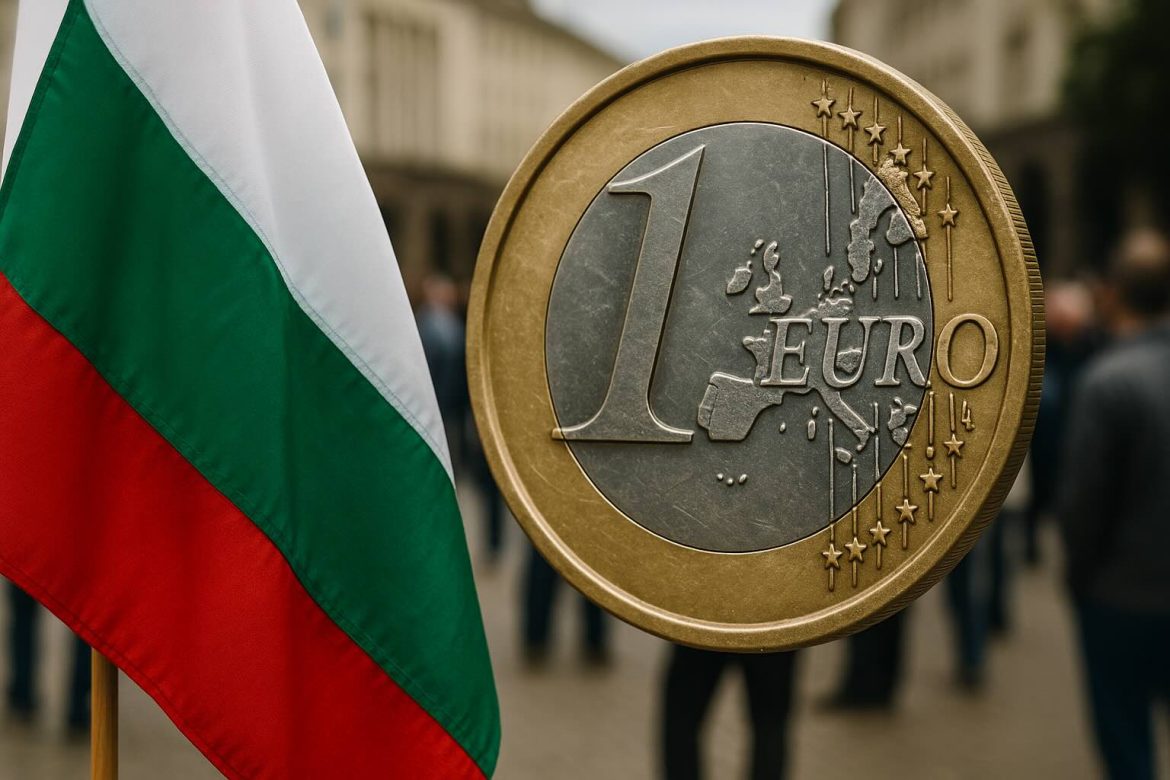Bulgaria is approaching a key milestone in its long-standing ambition to join the euro area, with a formal assessment by the European Commission and the European Central Bank (ECB) expected on 4 June.
If the convergence reports conclude that Bulgaria meets the necessary fiscal and monetary conditions, the country could adopt the euro as early as January 2026.
Officials in Brussels are increasingly optimistic. Based on current economic indicators, Bulgaria is on track to satisfy the Maastricht criteria, particularly on currency stability and fiscal discipline. However, despite progress on inflation, political and public concerns continue to cast a shadow over the process.
Prime Minister Rossen Jeliazkov has described the move as a “strategic leap” for Bulgaria’s economic competitiveness. “It makes no sense, at a time when the nation should be confident that the introduction of the euro will only benefit the competitiveness of our economy, for us to introduce a debate that actually manipulates people and instils fear in them,” he said on Tuesday.
The final decision on Bulgaria’s accession rests with the EU Council, following publication of the convergence assessments. If approved, EU leaders are expected to confirm the timeline at their June summit, with the euro conversion rate to be set by euro area finance ministers, potentially by July.
Despite official assurances, scepticism is growing among the public — particularly in rural regions, where inflation fears dominate. Critics warn that adopting the euro could lead to a one-off rise in prices as businesses exploit the transition. Such effects have been observed in other recent euro adopters, including Slovakia, Estonia, and Lithuania, where integration into the single currency bloc led to medium-term price adjustments, especially for basic goods.
“[Rural voters are sceptical] not because they’re eurosceptic, but because of fears over an increase in the cost of living,” noted Deputy Prime Minister Atanas Pekanov, a prominent advocate of euro accession. Concerns are most acute in relation to food staples such as vegetables, where limited market competition outside urban centres could amplify price shocks.
Inflation has been the primary hurdle in Bulgaria’s eurozone bid. To qualify, the country’s average inflation rate between April 2024 and April 2025 must not exceed the average rate of the three best-performing EU member states by more than 1.5 percentage points. In 2024, those countries were Ireland (1.0%), Italy (1.4%), and Luxembourg (1.6%).
According to official data, Bulgaria succeeded in bringing down inflation from 4.7% in 2023 to 2.6% in 2024. However, the rate is expected to rise again to 3.6% in 2025, largely due to a hike in VAT at the start of the year. While this places Bulgaria above the eurozone’s projected 2025 average of 2.1%, EU officials suggest that the overall trend still supports convergence.
Opposition to the euro has gained political traction, particularly following remarks by President Rumen Radev, who earlier this month called for a national referendum to delay the transition. The announcement caused widespread consternation in Sofia, where the proposal is viewed as both legally untenable and politically divisive. Bulgaria’s Constitutional Court has previously ruled that a referendum on euro adoption would be unconstitutional.
In Parliament, most parties continue to support the timeline for entry. Radev’s intervention has been criticised by government ministers and lawmakers alike, who argue that it undermines public trust in the process.
Behind the political disputes, the economic case remains largely unchanged. Bulgaria has maintained a currency board arrangement since the late 1990s, with the lev pegged to the euro. As a result, the country lacks an independent monetary policy, and the transition is unlikely to alter existing macroeconomic conditions significantly.
Supporters of euro adoption argue that it will reduce transaction costs, attract foreign investment, and increase Bulgaria’s influence within the EU. It would also symbolically align the country more closely with the Union’s institutional core at a time of heightened geopolitical uncertainty in Eastern Europe.
However, persistent rule-of-law concerns and perceptions of corruption continue to weigh on Bulgaria’s EU credentials. Transparency International ranks the country as one of the most corrupt within the bloc, and international investors have frequently cited legal uncertainty as a key deterrent.
On financial markets, investor sentiment appears to be strengthening. Yields on Bulgaria’s nine- and thirteen-year euro-denominated bonds, issued in April, have fallen to their lowest levels since trading began — a sign of confidence in the country’s economic trajectory.
If approved, Bulgaria would become the 21st member of the eurozone and the first to join since Croatia in 2023.
Read also:
EU Ambassadors Endorse Bulgaria and Romania’s Full Accession to the Schengen Zone


